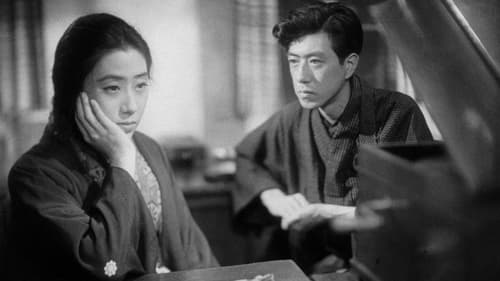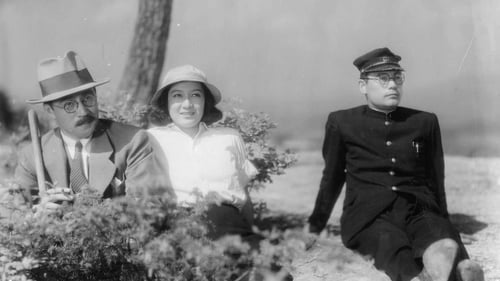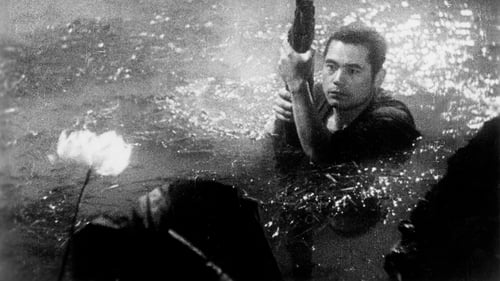
Producer
Three and a half years after Japan was bombed, the tax authorities organized the T-Men. Nango is in love with a girl called Mibu, and the two are against the T-Men organization. Mibu whats to kill all of the T-Men one-by-one.

Producer
Sumako, a country girl, becomes a great actress with the help of Hogetsu,a scholar who brought some of European realism to the Japan's stage. The relationship leads to the end of his marriage and the breakup of his Arts Society. This is another version of Kenji Mizoguchi's film "The Love of Sumako the Actress" ("Joyû Sumako no koi"), from the same year. Both tells the story of the famous actress Sumako Mitsui (1886-1919), considered the first great modern theater actress in Japan. Mizoguchi himself is said to have preferred Kinugasa's version.

Producer
Omnibus of love stories from 1947 directed by famous directors, featuring big stars.

Producer
黒澤明監督の戦後最初の監督作品。京大・滝川事件とゾルゲ・スパイ事件をモチーフに、ファシズムの吹き荒れる時代にあって自らの信念に基づいて強く生きる女性の姿を謳い上げたドラマ。国民的アイドル原節子が芯の強いヒロインを好演。昭和8年。京都帝国大学の教授・八木原の教え子たちにとって教授の一人娘、幸枝は憧れの的。野毛、糸川の二人の学生も幸枝に想いを寄せていた。秀才型で日和見的な糸川に対して実直で行動派の野毛。軍国主義が強まる中、野毛が左翼運動へと身を投じる一方、糸川はひたすらに法曹の道を目指していた。やがて、幸枝は信念を持って行動する野毛に魅力を感じ始めるのだったが……。

Writer
黒澤明監督の戦後最初の監督作品。京大・滝川事件とゾルゲ・スパイ事件をモチーフに、ファシズムの吹き荒れる時代にあって自らの信念に基づいて強く生きる女性の姿を謳い上げたドラマ。国民的アイドル原節子が芯の強いヒロインを好演。昭和8年。京都帝国大学の教授・八木原の教え子たちにとって教授の一人娘、幸枝は憧れの的。野毛、糸川の二人の学生も幸枝に想いを寄せていた。秀才型で日和見的な糸川に対して実直で行動派の野毛。軍国主義が強まる中、野毛が左翼運動へと身を投じる一方、糸川はひたすらに法曹の道を目指していた。やがて、幸枝は信念を持って行動する野毛に魅力を感じ始めるのだったが……。

Executive Producer
Two sisters, one a dancer and the other a script supervisor at a big movie studio, become embroiled in union activities when a strike is called in sympathy with striking railroad workers, one of whom boards with the sisters and their parents. The girls' father argues with them about their strike, but finds his views changing when he himself loses his job.

Producer
The story of Sanshiro, a strong stubborn youth, who travels into the city in order to learn Jujutsu. However, upon his arrival he discovers a new form of self-defence: Judo. The main character is based on Shiro Saigo, a legendary judoka.

Writer
This movie is presumed to be lost.

Executive Producer
Documentary of an Imperial Japanese Army regiment's advance from Shanghai to Wuhan in 1938. This film was shelved before submission to Home Ministry censors amid rumors that Fumio was a Communist.

Director
Propaganda documentary about the fall of Nanking. Considered for a long time as a lost film, it was discovered in Beijing, China, in the year 1995.

Producer
Propaganda documentary about the fall of Nanking. Considered for a long time as a lost film, it was discovered in Beijing, China, in the year 1995.

Screenplay
Based on the comic by Yutaka Asou

Screenplay
The film generally regarded as Japan’s first true musical was also the first film made entirely in-house by the pioneering studio P.C.L., a company founded specifically to take advantage of emergent sound technology. P.C.L. worked in collaboration with a brewer’s firm, Dai Nihon Biru, who met the production costs of the film in full, and whose products are featured in the film in an example of the sophisticated and modern merchandising typical of the studio’s early work. The film is partially set in a beer hall, and its story concerns a beer seller at a train station and her relationship with a music student trying to create a hit song. Director Sotoji Kimura was to become a company stalwart, making such films as Ino and Mon, while actress Sachiko Chiba would emerge the studio’s first real star, appearing in such films as Wife Be Like a Rose.

Director
After his Tokyo farewell ceremony, Yamamoto's ashes were sent to Kyoto on March 9. Many friends and citizens gathered at his home in Uji. On the 15th a worker-farmer funeral was held at the Sanjo YMCA. Prokino's Kyoto Branch shot these five days of activities. The long line of cars is filled with taxis, whose drivers deeply admired Yamamoto. The Watanabe in the title refers to the head of the Communist Party of Japan. Watanabe was returning to Japan from Taiwan when he was stopped by authorities. He committed suicide in their custody. Yamamoto and Watanabe were mourned together.










